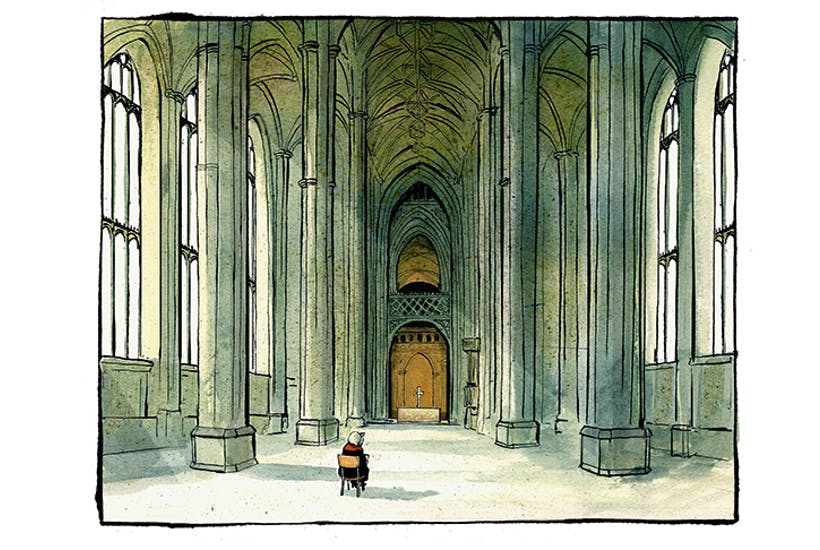General Synod has repealed the old law that every Anglican church must hold a Sunday service. It’s not really the end of an era, because the law has been flouted for decades: many rural vicars are in charge of a large handful of churches and cannot hold services at all of them every week.
It’s a reminder that we have to think creatively about how to keep our parish churches alive. And this is not just the responsibility of Anglican churchgoers. Because we have an established Church, it makes some sense for an agnostic who never, or nearly never, attends worship to feel some connection with his or her local church. It is part of the public realm, part of the historic life of the village or district. Some nonbelievers would shrug at the closure of their local church, but most would understand that an important community resource was dying.
Am I suggesting that community-minded agnostics should go to church, at least sometimes, for the sake of defending their communities? No, churchgoing should be sincere (this is why I can’t abide pushy parents going to church to secure a place at a church school). But a church can also be used for secular purposes, and agnostics should help their local church to be a local community centre as well as a place of worship. They should set up youth clubs or dance classes or discussion groups – most vicars are happy to lend the space for free or almost free; they understand that they need to keep the doors open to the secular neighbourhood.
I’m currently trying to set up a secular arts centre in one of my local churches. If it works, it will be good for the local community, as amateur artists will have a new space to meet. And it will also be good for the parish, increasing its contact with the world around it. Such ventures take a bit of humility, on both sides – but it’s hard to see how else churches will remain central to their communities.







Comments